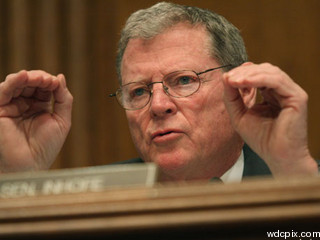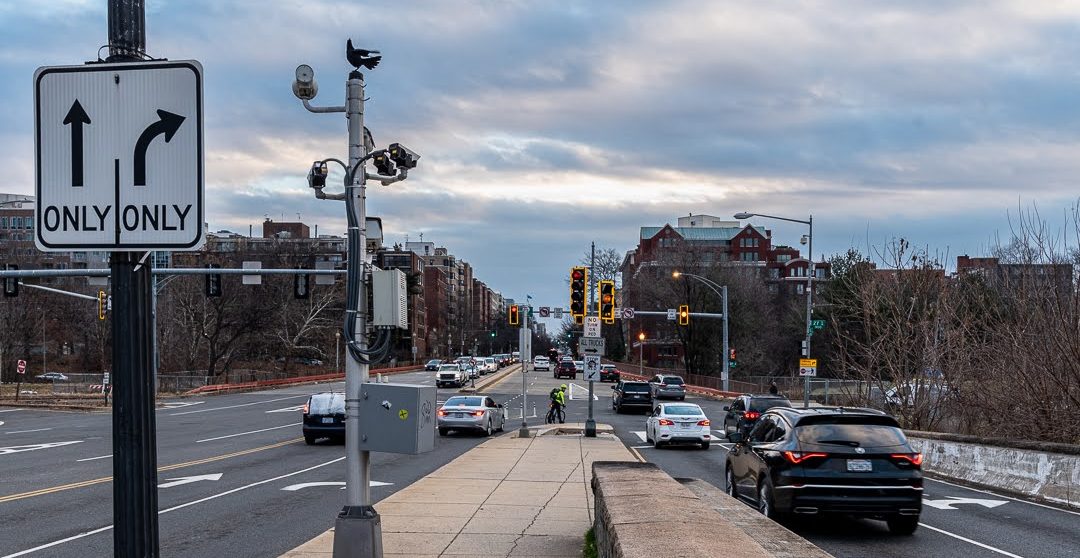The Environment and Public Works Committee unanimously agreed this morning to send a four-month extension of the transportation bill to the full Senate. Chair Barbara Boxer (D-CA) emphasized that it wasn’t easy to get consensus on the extension, especially with many members wanting to move forward with the full two-year bill.

And yesterday, as frazzled Senators rushed around the Capitol during their first day of legislative work after the August recess, the reality began to set in that the clock is ticking to pass an extension before the surface transportation programs expire on September 30.
In addition to passing the extension this morning, Boxer’s committee has also been crafting a two-year, $109 billion reauthorization that would keep spending at current levels.
Oklahoma Republican James Inhofe, the ranking member on the committee, voted for the clean four-month extension, saying it will buy the time needed to craft the two-year bill. He says he won’t support Sen. Tom Coburn’s push to kill transportation enhancement funding, which includes bicycle and pedestrian projects – for now. But when it comes to the two-year bill, Inhofe would like to say goodbye to all bike/ped projects.
“I’m all for totally cutting the transportation enhancement funding,” he said in an interview with Streetsblog. “I’ve talked to Senator Boxer about it and I think we can come up with something where we do away with those enhancements.”
Boxer has pledged to maintain dedicated funding for bicycle and pedestrian programs in the bill.
Inhofe did acknowledge, however, that TE comprises “less than 2 percent [of the transportation program], instead of the 10 percent that some people think it is.” (Coburn is one of those people.)
Inhofe defended his decision to support a clean extension, saying the most pressing transportation need in Oklahoma is state of good repair, particularly for bridges. “We’re tied with Missouri for dead last in the condition of our bridges,” he said. “We also have a lot of maintenance problems.” At this morning’s meeting, he mentioned the mother of three who was killed by a chunk of falling concrete under a bridge in his state.
He said he wishes the two-year bill were even more “robust” than it is, and disparaged attempts in the House to make it smaller. He encouraged his “Republican friends” to support the bill, saying, “The chairman [Boxer] has been very good in working with us on streamlining in this bill, and some of the onerous regulations we otherwise had to deal with. You don’t get that in an extension; that’s why we have to get a two-year bill.”
Inhofe emphasized the need for performance measures in the bill, saying, “One of the few things that works well in government is a reauthorization bill where you have criteria. And that criteria determines what you’re going to be doing in each state.”
But Inhofe, a climate denier, has fought (seemingly successfully) to keep emissions reduction standards out of the bill. He even claimed President Obama’s support for emissions standards is “the chief obstacle” to adequate transportation funding.
Inhofe’s fellow Oklahoma Republican, Tom Coburn, has threatened to block the extension if the sliver dedicated to bike/ped projects, streetscaping and historic preservation isn’t eliminated.
Coburn has a history of holding up important bills until he gets his way, but in this case wouldn’t yet say whether he’ll put a hold on the vote or offer an amendment to cut the transportation enhancements. An amendment would be easier to overcome than a hold, which can be done by a single senator. Still, even if he does put a hold on the bill, insiders say that can be overcome. It just means the Senate will have to dedicate more time to the vote, but they say Reid has budgeted ample time.
Alabama Republican Jeff Sessions on the EPW Committee also had an amendment he wanted to add, which would codify the president’s controversial decision to lower ozone standards until 2013, but he agreed to withdraw so the committee could avoid getting bogged down in what was sure to be a lengthy and heated argument. Boxer thanked him, and Inhofe said he would agree with the amendment but it wouldn’t pass the committee anyway.
Sessions voted for the clean extension but said yesterday he had mixed feelings about whether or not transportation enhancements should be slashed. He said he is skeptical of the value of bike/ped funding.
He even used active transportation as a scapegoat for project delays and cost overruns, claiming that in his hometown, "they stopped construction of a highway because the federal government insisted on bike paths” and “it’s going to delay for over a year and add 10 percent to costs."
"So I’m very dubious about mandates of that kind," he said. "A lot of the things we’ve been spending money on have not shown themselves to be ‘enhancements.’”
Like Inhofe, Sessions’ priority is highways, which he calls "a productivity enhancement for America.”
Meanwhile, it’s up to Montana Democrat Max Baucus, chair of the Senate Finance Committee and a key member of EPW, to find the $12 billion needed to bridge the gap between what the two-year Senate bill spends and what’s left in the Highway Trust Fund.
Baucus reports: “We’re finding it. We’re close.”
But as for where the money will come from, “That hasn’t been determined yet.”





